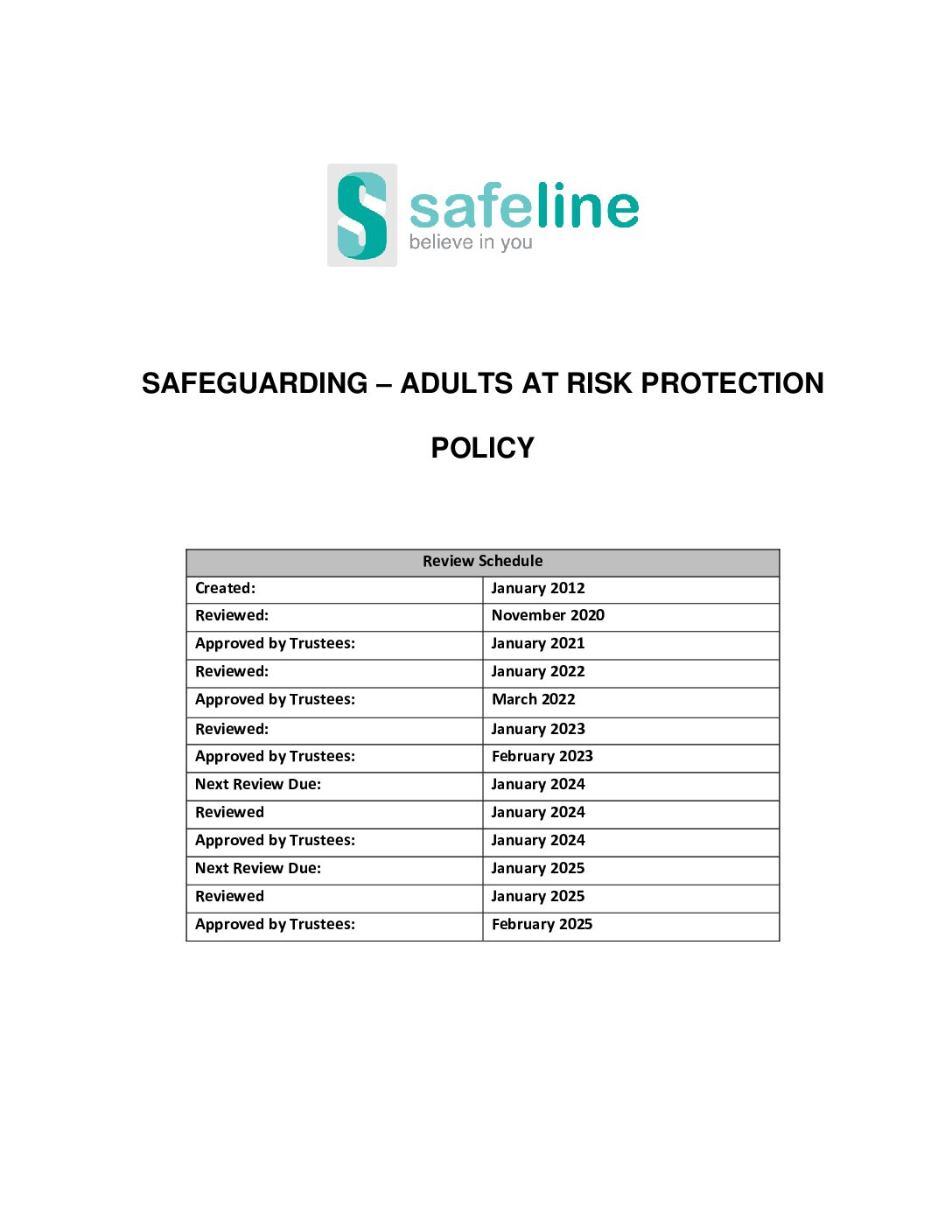Call us now 01926 402 498
Adults at Risk Protection Policy
Learn more about Safeline’s Adults at Risk Protection Policy and how it is implemented. Information available in downloadable file.
 https://safeline.org.uk/wp-content/uploads/2024/12/Untitled-design-8.png
https://safeline.org.uk/wp-content/uploads/2024/12/Untitled-design-8.png
National Male Survivor
Helpline
0808 800 5005
SAFEGUARDING – ADULTS AT RISK PROTECTION POLICY

File Type: PDF
Size: 0.4 MB

